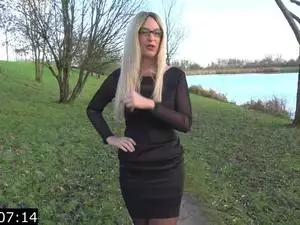Death And Damnation: Book 2 Of Poacher's ProgressChapter 15: The Chase free porn video

Actually the trip was not as unpleasant as I had feared. Our orders, giving us carte blanche to use all and any force to stop the sailing of Western Star, were delivered ten minutes before we climbed aboard the Bristol mail coach. Unfortunately Jane and I had to sit atop of the coach, as our booking had been too late to secure an inside berth. As it was two other passengers were ejected to make room for us, much to their displeasure.
We were well wrapped up against the cold night air as the coach started off on the hundred and twenty mile drive to Bristol. I had made many night marches in Spain during the winter, and remembered the rutted tracks, the freezing weather and the stopping and starting, as columns of marching men stumbled through a pitch black night. It was as black as any night I had encountered in Spain but the road, with the macadamised surface, was smooth, the horses kept a steady pace of ten miles an hour and the weather, although cold, was not freezing.
Jane and I made no conversation for much of the journey; at the stage halts the horses were changed in less than ten minutes, and it was only at The King's Head Inn at Thatcham, over fifty miles from London, did we stop long enough for the passengers to get food and drink, and use the jakes. I had managed to write a short letter to Annette before leaving London, and I thought of her as the coach rolled through the dark night. In fact I had fallen asleep for a few moments and dreamed of her, only awakening as we pulled into Thatcham.
We had another twenty minute stop, at The Black Swan in Calne, where I managed to consume a hot pie and drink a tankard of mulled ale, before once again clambering up to my icy perch on top of the coach.
At dawn Jane and I shared a few words together as the coach continued to Bath, the early sun giving a hint of warmth, and lighting up the lush countryside we travelled through. He handed me a great wedge of Cheddar cheese and a large piece of a freshly baked cottage loaf.
"The serving girl took a fancy to me, and gave me a round of cheese and a loaf, although I had only ordered a glass of mulled wine." He smiled to himself, and I fancied that many wenches would take a fancy to him, as he had an open, boyish, look and a dazzling smile.
I thanked him and wondered if we would get to Bristol in time to stop the sailing of Western Star.
"The ebb tide is at ten this morning; if Hardy fails to reach the ship by then he will have a twelve hour wait before the next tide." He looked apologetically at me. "I have a memory such that once I have read something it stays in my mind for ever. I have read the tide tables for all the English ports, which is why I can be so exact." He sighed. "Some people think I am a show off and know it all — and I suppose I am, but truly I only try to be helpful."
"But we are not due to reach Bristol until eleven—we will be too late to stop the sailing at ten."
"I doubt the ship will sail without Hardy being aboard. He will have the documents required to get them past the guard ships that patrol off St Helena."
I asked what he meant, and he explained that all vessels approaching St Helena are challenged, at two hundred miles radius from the island, by the frigates that act as sentinels. To be allowed to continue civilian ships must have written authority to visit the island.
It was just gone eleven when the mail coach drew up outside The Lamb and Flag in the Haymarket at Bristol. It then took ten minutes for a hackney to convey us to the dock, where we found no sign of Western Star. The Harbour Master confirmed that the vessel had caught the final ebb of the tide.
"They nearly didn't make it; a six in hand came galloping in, and I've never seen dunnage moved from shore to ship so quickly, and there was a lot of it. The captain was swearing like a trooper to get his men moving faster, and the last trunk had just been swayed across when the ship cast off."
Jane looked up at the flags flying from the Harbour Master's office. "With this north easterly she will be well into the Bristol Channel by now, by Flat Holme, would you say?"
The Harbour Master nodded. "Aye, the crew looked to be all prime seamen, and them Yankees can sail well enough."
"The Western Star is an American vessel?" Jane asked.
The Harbour Master spat over into the dock. "Aye, that she is, registered in New Orleans. Although I would say that most of her crew had learned their trade in 'the Andrew'."
I looked from him to Jane. "The Andrew—?"
Jane explained that it was a nickname for the Royal Navy, and that American ships had a high proportion of their crew who were discharged, or deserted, former Royal Navy seamen.
The Harbour Master continued. "Not like that band of roughnecks, —I would estimate at least sixty of them—that embarked earlier. I took them at first to be from the Sixtieth Rifles, wearing rifle green uniforms as they did, but not one of them spoke English. I would say that most of them were Froggies. I know what their gabble sounds like as I was held captive by the snail swallowers for three years." He spat into the dock again. "Each of them wore an earring in one ear, and I reckon that not one of their company was under the age of thirty. Corsican Rangers they were, or so their commander told me. He at least was an Englishman, a Colonel by his rank, and a twice lucky man; first that the ship didn't sail without him, and second to have such a comely travelling companion as the lady he accompanied on board."
"Did any of these Corsican Rangers have a scar on his cheek; a man in his late fifties, small and dark, with a face likes a ferret?"
"None that I saw, although there were many of that age. All bore themselves with pride, more like generals than private soldiers."
Jane asked the Harbour Master some questions concerning Western Star. How it was rigged, how many, and what calibre, armaments did it mount. I stood and thought what we should do next.
Jane came over to me "It appears that Western Star is a slaver. She's a topsail schooner, that is, a two masted schooner with a square topsail on the foremast, and is very fast. She carries a crew of about forty men, and is armed with ten twelve pounder carronades. The sixty men of the so called Corsican Rangers will be quartered below deck, in the space that would normally house three hundred slaves when taking the Middle Passage."
"We must get a naval vessel after her at once; you have the necessary orders to set that in motion. I will report to the garrison commander and have troops made available. We may have to embark a company of infantry, to overcome those Corsicans when we board them."
I made to go but Jane stopped me. "If you look about you, Major, you will see that there are no Royal Navy ships in port. As far as I know the nearest frigate is based at Milford Haven, and will probably be on patrol in the Irish Sea. We will have to travel back to London; Colonel Slade will need to obtain a ship, of sufficient strength and speed to match the schooner, and send it after her."
He was right; I had not looked to see what was available to us. "How the devil did Hardy get here so quickly; you supposed it would be noon before he reached Bristol?"
Jane flushed and looked apologetic. "It seems that Mr Avis does have an agreement with the Bristol-Bath stage company; Avis coaches can change horses and drivers at The Blue Boar in Bath. Hardy had a fresh team, of six horses, for the last thirty miles, and must have sped along the turnpike at nearly sixteen miles an hour."
He looked so crestfallen that I slapped him on the back, and said, to cheer him up. "At least this makes you seem as most men, that you too can make mistakes. It was rather galling for me to find you ever right and omniscient."
He gave me a grateful smile. "So what do we do now? The next mail coach to London doesn't leave until eight tomorrow morning."
"That is true, but the Bristol–London express barge leaves from the Bristol Canal basin at four this afternoon, and we will be in London by noon tomorrow." It was his mention of 'sixteen miles' that had stirred my memory, as that was the length along the Kennet and Avon canal without a lock.
We had several hours before the barge left Bristol, so went for a good dinner at The Rummer Tavern, in All Saint's Lane. We ate, and also drank, rather well.
Patrick Jane was a convivial companion, and he had a keen eye. He explained how one could tell what a man, or woman, was thinking by the way they sat, talked, walked, or just fiddled with their table cutlery.
"We all give out signals, unbeknown to ourselves; it is a sort of language of the body." He said, as we tucked into a fine dish of roast saddle of venison. "I have trained myself to closely observe these signals, and can, most times, hazard a good guess how people will act. It has been very useful in my interrogation of prisoners, as I can always tell when someone is lying, even a woman!"
- 01.10.2021
- 28
- 0




























































